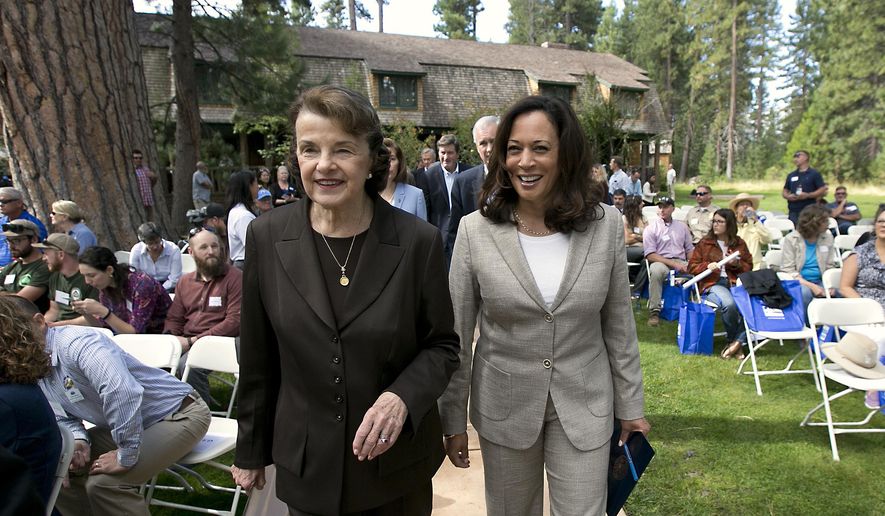The Senate Judiciary Committee cleared two nominees Thursday for seats on the 9th U.S. Circuit Court of Appeals, ignoring objections from California’s two Democratic senators who complained they didn’t get a say in who President Trump picked.
Daniel P. Collins and Kenneth Kiyul Lee were both approved on party-line 12-10 votes.
Democrats said the two men were too conservative to earn seats on the West Coast’s most important court, but their complaints were even broader, accusing Republicans of further upending the “blue slip” tradition that, at some points in the past, has allowed home-state senators to veto judicial nominees.
“We are seeing a new low,” Sen. Dianne Feinstein said, calling the move to advance the two 9th Circuit picks the first time a judicial nominee had been approved by the committee over objections of the top member of the minority party — in this case, Mrs. Feinstein herself.
“One thing we’ve learned, what goes around comes around,” the California Democrat warned.
The blue slip tradition is a Senate courtesy that has waxed and waned over the years. When a nominee is picked from a senator’s home state, he or she is given a chance to consent — and signals that consent by submitting a blue slip to the committee chairman.
The practice has taken on outsized importance now, with Democrats determined to stop Mr. Trump’s picks, yet left without many tools to do so because of the rules change their own party forced in 2013 to defang the filibuster.
Republicans say they respect the blue slips as a veto when it comes to lower district court nominees, whose jurisdiction is bound by a particular state. But for circuit nominees, which span multiple states, even though states claim ownership of seats, the GOP says it won’t allow senators to let the blue slip become a veto.
“Senator [Kamala] Harris is going to have a hard time voting for anybody acceptable to Trump. That’s just the way it is,” said Sen. Lindsey Graham, the GOP chairman of the committee.
He and other Republicans said they found both Mr. Lee and Mr. Collins to be thoughtful and qualified for the seats.
Democrats complained that Mr. Collins had to tenuous a tie to the state, saying that while he was born and raised in the state, once served as an intern for Ms. Feinstein, clerked at the very 9th Circuit where he’s nominated to serve, owns property in California and makes the state one of his places where he practices law, he has only been a resident for one year since the time he left Stanford Law School.
Ms. Harris, who is running for president, missed the votes, and her opposition was registered by proxy vote.
• Stephen Dinan can be reached at sdinan@washingtontimes.com.




Please read our comment policy before commenting.